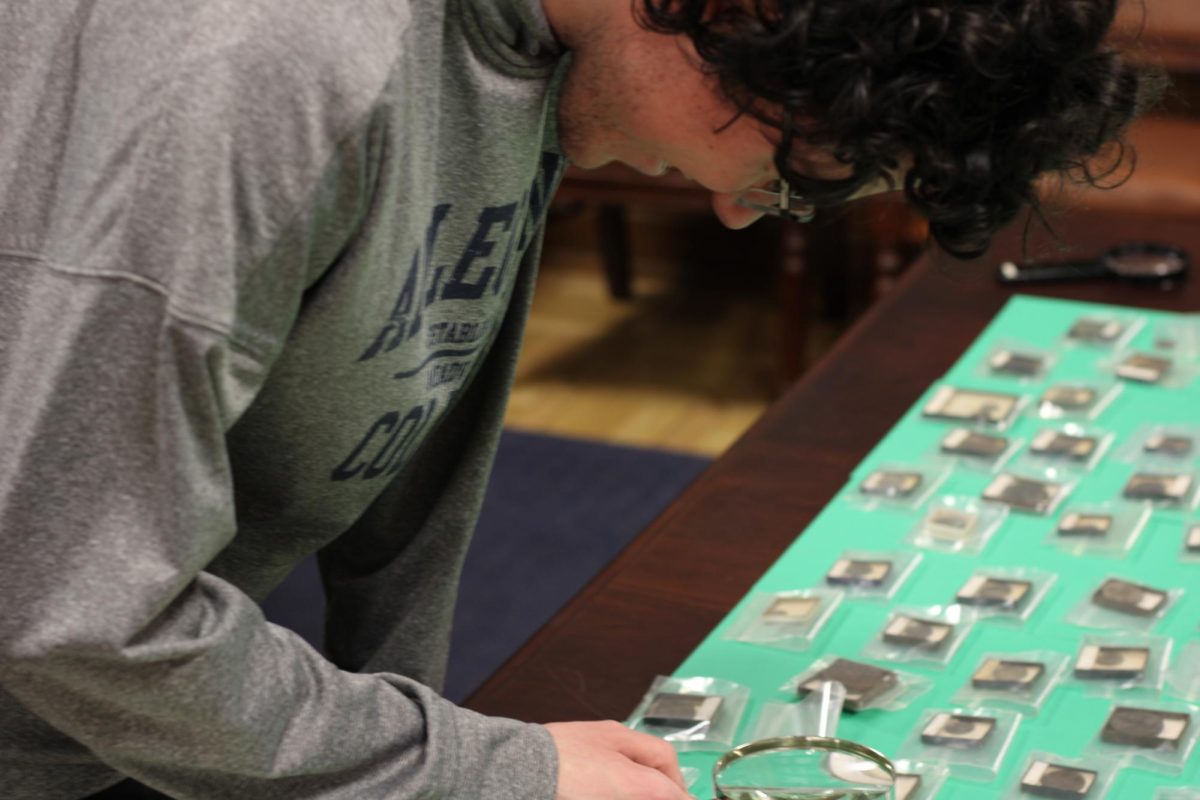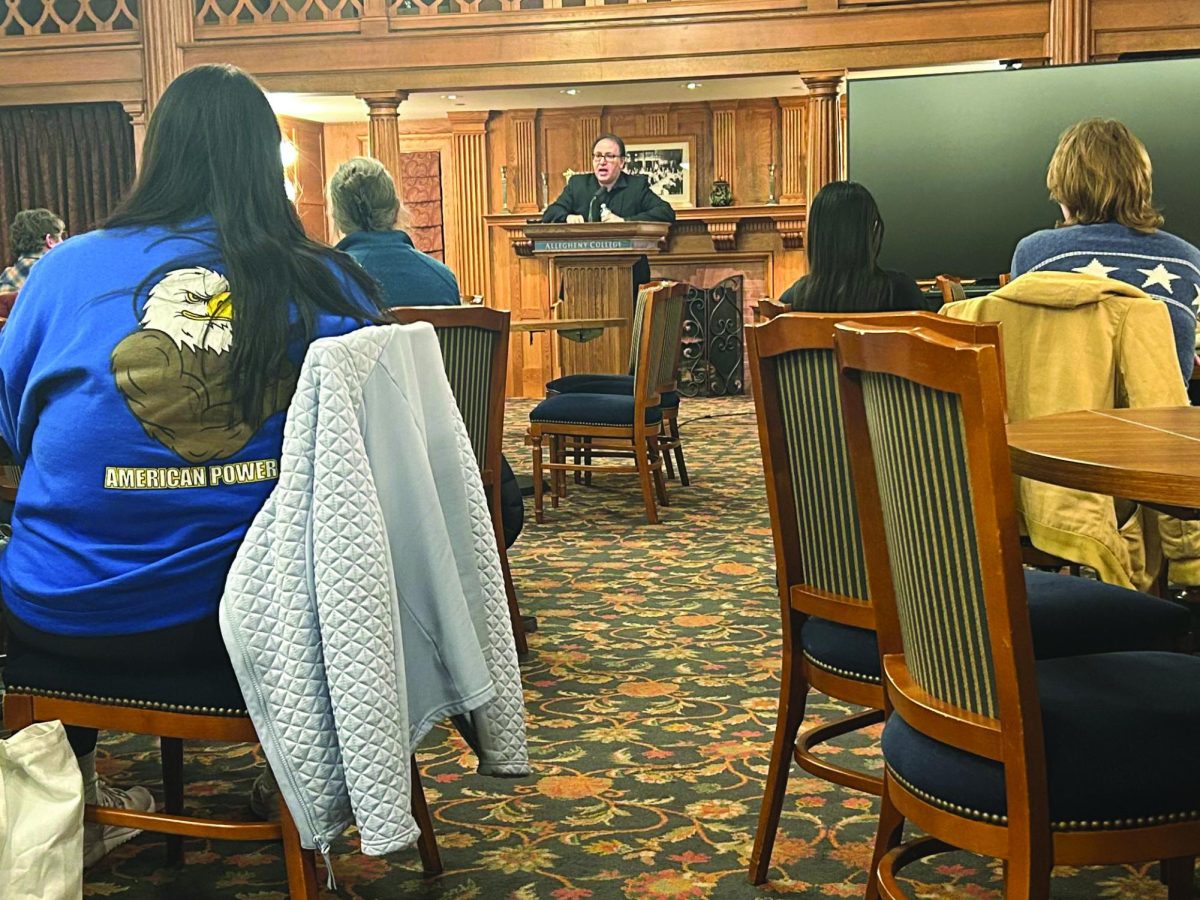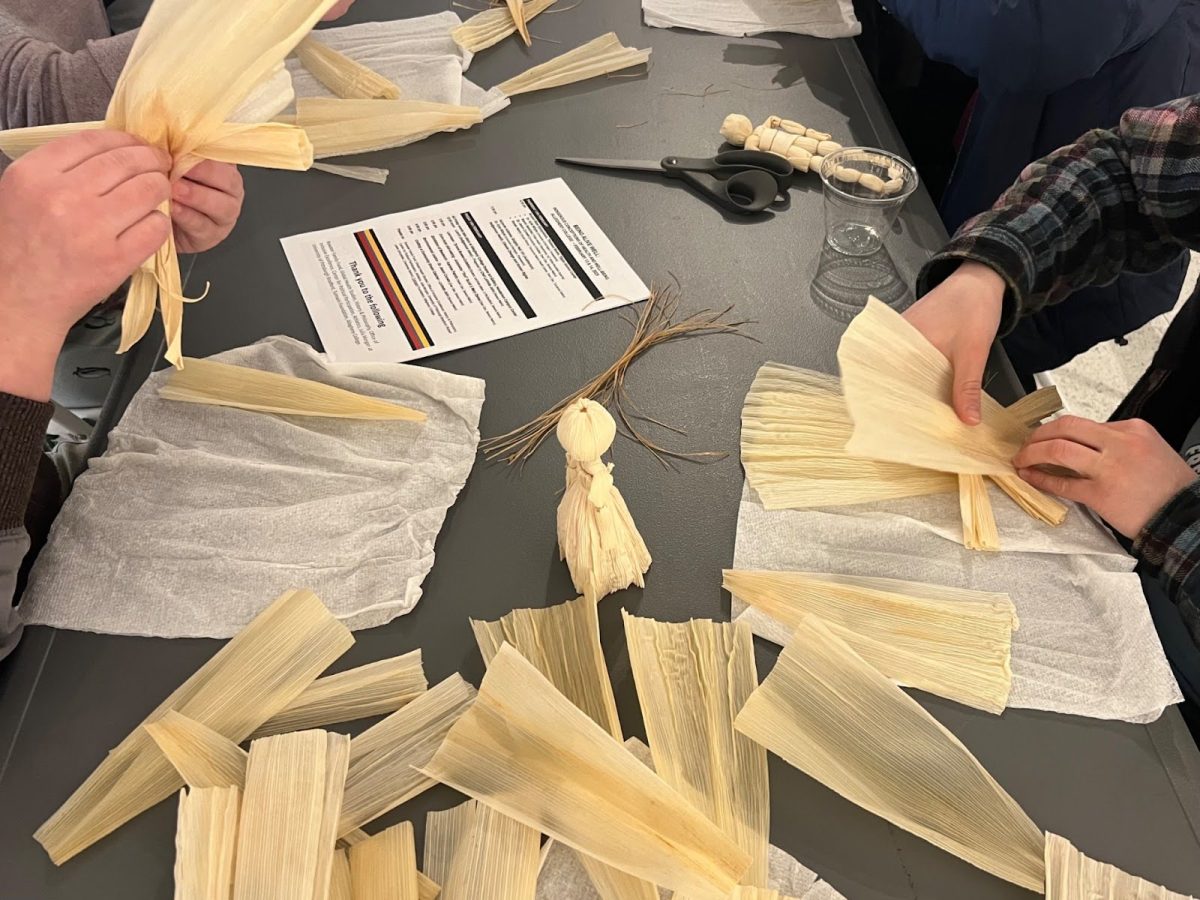“All Good Things Must Begin,” directed by Communication, Media, and Performance Department Chair Michael Mehler and alex martin, ’24, was performed on Sept. 23 at 6:30 p.m. and Sep. 24 at 2:30 p.m.
Made up of eight individual smaller plays, “All Good Things Must Begin” addressed the serious climate change issue that is happening in the world. The eight performances were chosen by Allegheny College students out of 50 plays in total.
“I was a bit nervous because we only had a week to rehearse, but the cast was filled with amazing people, so any fears I had went away pretty quickly,” said Emily Adams, ’25.
The performance consisted of several plays: “Clothes Minded,” “Now,” “Types,” “Inferno,” “Duet,” “Mirror Mirror,” “Cassandra Drowning,” and “50 Ways to End Mother Earth…in Under Five Minutes!” Though each play had its own theme, the overarching message of the performance was that all humans need to work together to halt climate change.
The cast for these performances was rather small, consisting of only six people: Adams, Grace Kegel, ’27, Niyah Moore, ’26, Kaleialoha Froning, ’24, Sydney Mitrecic, ’26, and Nickel Spartz, ’26. Each play included different combinations of actors in it, except for “Mirror Mirror,” which included the entire cast.
martin did not set out to become director, but fell into the role.
“I was talking to both Professor Rachel Hoey and Professor Michael Mehler and they were talking about how they were interested in a possible student director,” martin said. “I originally just planned to perform for it — I am performing in this week’s readings — but I enjoyed my directing class here so I half-jokingly said that I would do it, and the rest is history.”
The first play, “Clothes Minded” by Klae Bainter, addressed the topic of fast-fashion. The play was branded as a sort of commercial advertising “extending the life of discarded fashion.” Acted out by Kegel and Moore, and with Adams reading the stage directions, the cast touched on fast-fashion companies such as Shein and Temu.
“Now” by Wren Brian begins with deep breathing, after one character panics because they believe “there’s no point in dreaming of a future we won’t see.” Froning and Moore were the only two actors in this short play. Their characters addressed the problem of not doing anything about the current climate change crisis, and how it is better to do something rather than nothing.
The next performance was “Types” by Jessica Huang, which speaks mostly on racism that is caused by fear. Kegel played “Elder J”, who is afraid of “the outsiders” and attempted to kick them out of their territory, which is used as a euphemism towards racism. However, “Elder K”, played by Mitrecic, tries to convince Elder J that it is not a bad thing for outsiders to want to come into their homeland. The play finished by stating that “it takes all of us to change” the Earth’s living conditions.
The next play, “Inferno” by Angie Farrow, swiftly jumps into a scene in which Lola, performed by Froning, is anxiously describing the details of her house catching on fire. Lola’s husband Charlie, played by Spartz, tells her that “it’s just nature doing its thing.” Livid, Lola leaves home and goes soul-searching. She then finds a woman speaking to a crowd about changing to solar power. Lola can finally feel herself breathing again, and she looks up at the stars as the stage fades to black.
“Duet” by Annie Furman speaks on feeling alone in the climate crisis. Adams and Spartz begin to think of the future together in order to fill that void. Instead of using fear as a tactic to motivate the audience to want to end climate change, they use hope as a means to “turn off what holds you frozen”.
“Mirror Mirror” by Camila Le-Bert is the only play that included the entire cast. The scene starts off in the future with a kid, played by Adams, and his father, played by Spartz, viewing a human exhibit at the zoo. As they stare at a diagram of humans, the humans — Froning and Mitrecic — come to life and describe historical events that had happened in the year 2030. Watching this spectacle, the kid and his father criticize the actions of humans in their past.
Adams picked “Mirror Mirror” as her favorite of the eight plays.
“It has moments of comedy, moments that leave you thinking, and it has the whole cast in it,” Adams said. “A little bit of everything great!”
“Cassandra Drowning” by Nathan Joe opens with a woman who is drenched in water coming from leaks within her house. Her husband finds her and tries to console her with little success. The woman decides to leave home and try to do something about the climate change crisis. When she asks the man to come with her, he refuses.
“50 Ways to End Mother Earth…in Under Five Minutes!” by Kirby Vicente involved Adams, Kegel and Mitrecic playing three dumb girls who do not care about the environment. Although this play included several jokes, it also includes the reality of the “slow burn mass genocide” that is happening.
“The cast for this play worked amazingly with each other and every time they performed it, it was a new rendition of the piece,” martin said.
After the performance finished, the audience was able to have a serious conversation about the state of climate change as well as how they thought the play encouraged people to act on it.
Categories:
‘All Good Things Must Begin’
Performances examine human impact on climate
Story continues below advertisement
0
More to Discover






